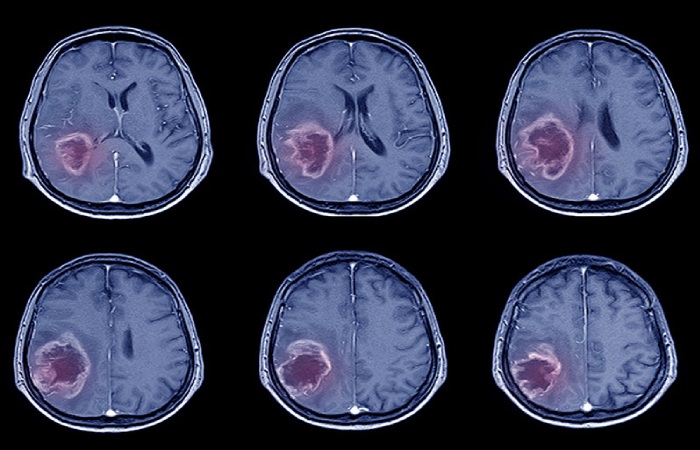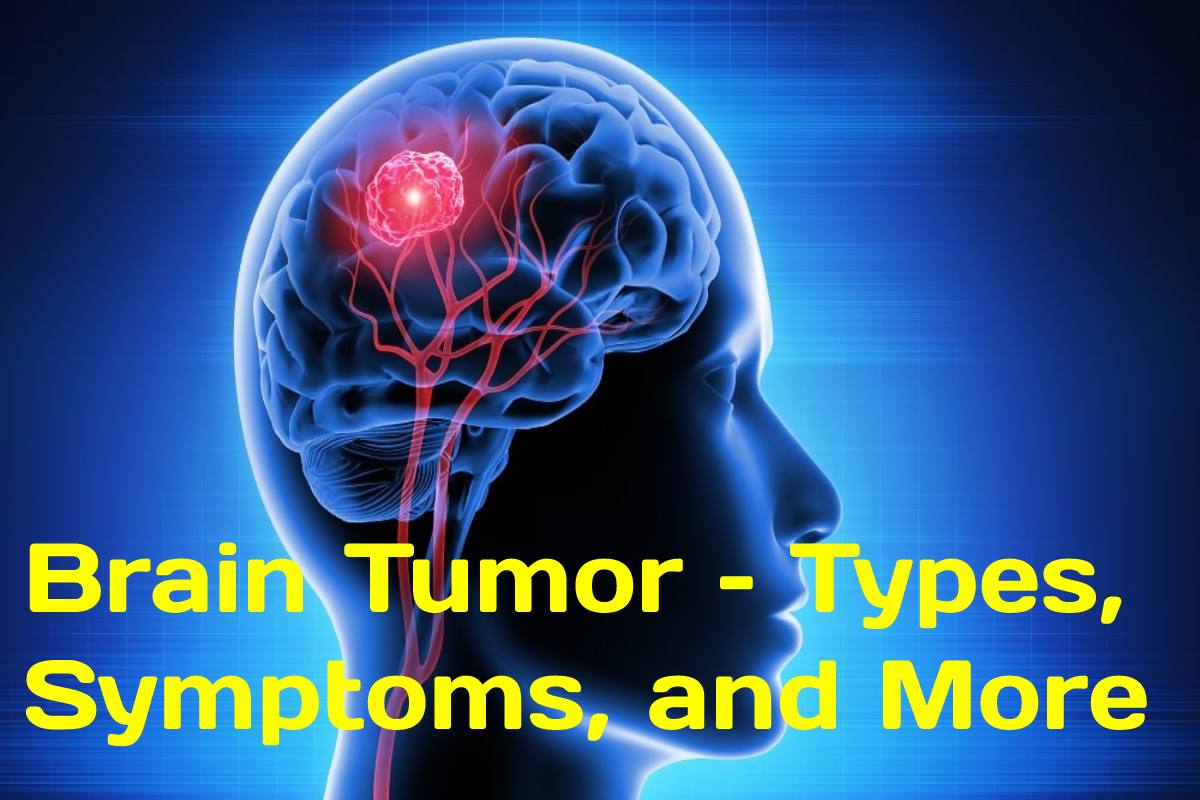Table of Contents
Brain Tumor
A brain tumor is a form or growth of abnormal cells in your brain. Your skull, which encloses your brain, is very rigid, and any increase inside such a limited space can cause problems. Doctors diagnose these tumours through a neurological exam and other tests such as MRI, CT scan, or biopsy. Treatment includes watchful waiting (monitoring without giving any treatment until symptoms appear or change), surgery, radiation, chemotherapy, and targeted therapy. Targeted therapy uses drugs or other elements that fight specific cancer cells and cause less damage to normal cells. Most people get a combination of these.

Types of Brain Tumors
Primary brain tumours comprise the brain and central nervous system cells system, and they get their name from the type of cell they first form. There are more than 100 types of brain tumours, and the most common types in adults are:
- Gliomas: These tumours start in glial cells, which are cells that help keep nerves healthy. Often they are cancer. There are several types of gliomas based on the specific cells they target. Astrocytomas are more common in adults, and Glioblastoma is the most violent type of glial tumour.
- Meningiomas form in the meninges, the thin layer of tissue covering the brain and spinal cord. They are not cancer, but they can cause problems by putting pressure on your brain.
- Schwannomas: It damages the protective layer of nerve cells. They are not cancerous but often cause hearing loss or balance problems.
- Pituitary adenomas: These form the pituitary gland at the base of your brain. Produces essential hormones. These tumours are usually not cancerous and grow slowly.
Brain Tumor Symptoms
Symptoms of brain tumours vary depending on the type and location of the tumour because different parts of the brain control other body functions, and where cancer locates affects its symptoms.
Some tumours have no symptoms until they grow large and then cause a severe and fast decline in health. Other tumours may have symptoms that grow slowly.
Common symptoms include:
- Headaches, which might not improve with regular headache treatments. You may notice that you have them more often or worse than usual.
- Seizures, particularly in somebody with no history of seizures.
- Changes in speech or hearing
- A change in perspective
- Balance problems
- Difficulty walking
- Coldness or tingling in the arms or legs
- Memory problems
- Change in personality
- Inability to concentrate
- Weakness in one part of the body
- Morning vomiting without nausea.
These symptoms can be the result of several conditions. Don’t accept you have a brain tumour just because you have nearly symptoms. Check with your doctor.
Most of the time, doctors can’t tell what reasons a brain tumour. There are few known risk issues for brain tumours in adults.
Radiation exposure. Children who receive energy from the head have an increased risk of developing brain tumours as adults.
Family history. Some brain tumours are associated with rare genetic conditions, such as neurofibromatosis or Leigh-Fraumeni syndrome.
Age. People aged 65 and 79 are most likely to be diagnosed with brain tumours.
No history of chicken pox. One study found that chickenpox people were less likely to develop gliomas.
Treatment of Brain Tumors
Treatment of brain tumors depends on:
- type of tumor
- tumor size
- tumor location
- your overall health
The most common treatment for malicious brain tumors is surgery. The goal is to remove as much cancer as possible without damaging the brain’s healthy parts.
While the location of some tumors allows for safe removal, other tumors may locate in an area that limits the number of tumors removes. Partial removal of brain cancer may also be beneficial.
Risks of brain surgery contain infection and bleeding. Benign tumors that are clinically dangerous are also surgically removed. Metastatic brain tumors treat according to the guidelines for the original cancer type.
Surgery may combine with other treatments, such as radiation therapy and chemotherapy.
Physical, industrial, and speech therapy can help you recover after neurosurgery.
Conclusion
survival rates for some types of brain tumor and spinal cord tumors can vary widely by age, with younger people tending to have better outlooks than older people. Survival rates for more common adult brain and spinal cord tumors.

